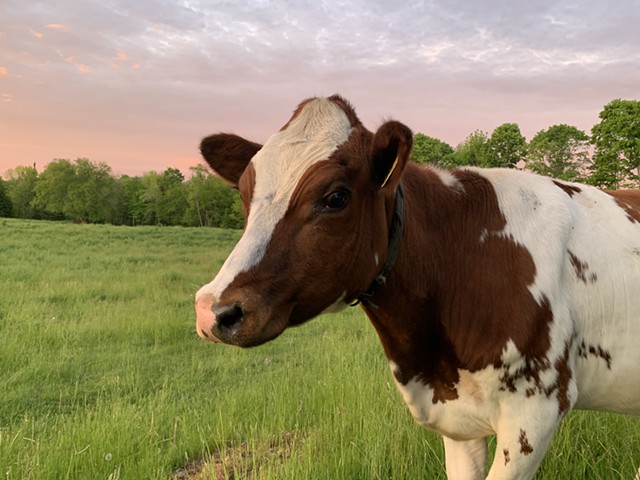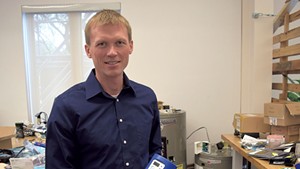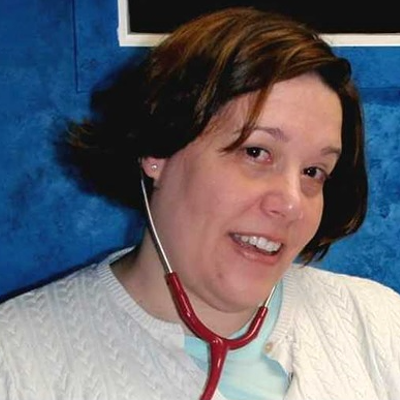
- Vermont Agency of Agriculture, Food and Markets
- A dairy cow
The Vermont-based ice cream maker is launching the project this year at 15 of the dairy farms that supply its milk. Seven are in Vermont, and eight are in the Netherlands.
Ben & Jerry's has been working for years to reduce dairy farm emissions. The company says on its website that each pint of ice cream it makes leads to about 3.3 pounds of greenhouses gases such as carbon dioxide and methane, which trap heat in the atmosphere and contribute to climate instability.
One of Ben & Jerry’s stated goals for addressing climate change is to help its milk suppliers adopt sustainable agricultural practices that reduce greenhouse gas emissions. The company has a target of using 100 percent renewable energy in its operations by 2025.
Related Vermont Climate Panel Passes New Emission Reduction Plan

Vermont Climate Panel Passes New Emission Reduction Plan
climate change. phil scott. global warming solutions.
Off Message
The project that is starting this year, which is funded with help from a $9.3 million grant from Ben & Jerry’s parent company, Unilever, is called "Project Mootopia." It combines a number of techniques, some of which Ben & Jerry's has used before, and some — like a seaweed-based feed supplement — that are new.
“We’ve never approached greenhouse gas reductions holistically,” said Evans. “It’s been project-based, which has only yielded us somewhat limited results. We’re seeing if we can work collaboratively with farmers and technical experts to address all the emission sources on the farms.”
One aspect of the project includes managing enteric emissions — the cow burps that release methane — by improving cows’ diets and adding digestive aids. The project will also improve manure management through technology such as digesters and separators. And the company is also using regenerative practices to improve the use of grasslands, promote biodiversity and improve soil health.
The study includes the use of a natural seaweed supplement called Brominata. Its manufacturer, Blue Ocean Barns, says the dehydrated red seaweed cuts cows' methane emissions by more than 80 percent.
A study that involves researchers, advisers, and farmers is more likely to come up with emissions mitigation that is feasible and affordable, according to Theun Vellinga from Wageningen University and Research in the Netherlands.
“We cannot stick to one mitigation option only; there is no silver bullet,” he said in a prepared statement. “But a package of options will help us reach the target reduction.”
Reducing the greenhouse gas emissions created by farming is a goal of Vermont’s climate action plan, the blueprint for meeting the emissions reduction requirements set out in the state's 2020 Global Warming Solutions Act. According to the plan, agriculture accounts for 16 percent of Vermont’s greenhouse gas emissions.
The dairy farming sector is shrinking in Vermont, but dairy is still the largest sector in Vermont agriculture, according to Ryan Patch, the deputy director of the Agency of Agriculture's Water Quality Division. There are 120,000 mature dairy cows in Vermont, he said.
Patch said there are 14 manure digesters in the state generating power.
"It's not a new technology, but it’s a technology that is being recognized more lately for its importance in climate change," he said.
Evans said she hopes the research starting this year will yield results that can help other farmers improve their practices.
“We’re planning to be really transparent about what is working and what is not,” she said. “We don’t think sustainability should be proprietary. If we can find solutions that work, we want other dairy companies to adopt them.”







Comments
Comments are closed.
From 2014-2020, Seven Days allowed readers to comment on all stories posted on our website. While we've appreciated the suggestions and insights, right now Seven Days is prioritizing our core mission — producing high-quality, responsible local journalism — over moderating online debates between readers.
To criticize, correct or praise our reporting, please send us a letter to the editor or send us a tip. We’ll check it out and report the results.
Online comments may return when we have better tech tools for managing them. Thanks for reading.